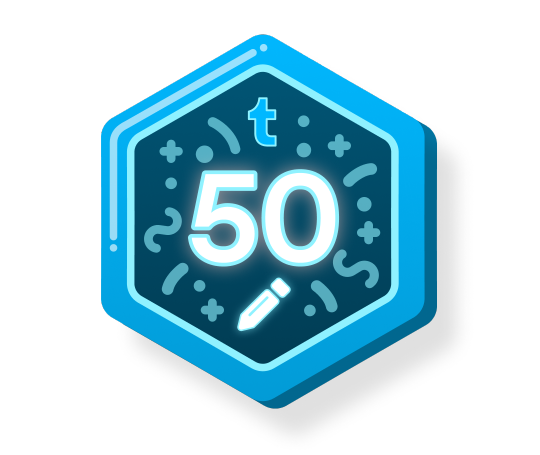Text
A Deep Dive into the Latest Teaching Vacancies across India. Read the article to learn more.
0 notes
Text
Know if teaching is best suited for you as a profession. Read the blog post to learn more.
0 notes
Text

Leading Job Search Portal for Teaching Jobs in India. Register at the Jobs in Education website to get your dream job in the education sector.
https://www.jobsineducation.net/
0 notes
Text

Choosing Teaching Jobs As Your Career Path Discovery.
Explore the reasons behind choosing a teaching career. Check out the amazing tips by Jobs In Education on how to answer the reasons behind taking up a teaching job. Read the blog post to learn more.
https://www.jobsineducation.net/blog/why-did-you-decide-to-go-for-a-job-in-the-teaching-field
0 notes
Text
Child Safety in Indian Schools

One of the most crucial foundational elements of a person’s life is their education. Approximately 13 to 15 years of a child’s life are spent in school. One of the major concerns for schools and school teaching jobs people should establish a safe atmosphere in addition to offering high-quality instruction. Most of the provisions are aimed at private education institutions. Private schools are required to comply with mandatory requirements such as installing CCTV cameras in classrooms, hiring a counselor, having the staff verified by the police, and many more rules whereas government schools are exempt. Schools should prioritize the safety of their students above all else, and states should take the lead in implementing these policies gradually, starting with government schools and working their way down to private ones.
The following could be a helpful step in ensuring that kids nationwide have a safe school experience
The National Commission for Protection of Child Rights and the National Disaster Management Authority are two such agencies that might house all of the currently dispersed laws under one policy document.
Enough authority should be granted to the agency designated as the lead agency to take appropriate action against any infraction, whether it is at the state or school level for child safety in Indian schools.
“Child safety” ought to be covered in teacher education programs and institutes all around the nation.
The majority of schools forbid School Management Committees (SMCs) and Parent Teacher Associations (PTAs) from using their legal authority to make decisions. As a result, SMCs and PTAs ought to be allowed to use their authority.
Through SMCs and PTAs, schools should educate parents on the value of teaching their kids about safety and how to avoid potential threats.
Kids must learn life skills to deal with sexual assault in a nation where 53% of youngsters report having experienced it. Additionally, it is crucial to teach kids the distinction between “good touch” and “bad touch.”
Student Safety Committees headed by students ought to exist in every school. They ought to have the power to conduct an audit of the school’s grounds and notify the principal of any problems, so that they may be resolved right away.
A large number of states and education boards nationwide have incorporated disaster management into their curricula. Priority should be given to implementing this with greater strictness.
After the majority of schools receive permanent recognition, there are typically no more inspections to make sure they are following the rules. Under such circumstances, the government ought to establish a District Safety Committee, with representatives from the District or Block Education Office, as well as the local police and fire departments. This committee would then have the authority to conduct inspections of schools to look for serious safety violations. The results ought to be applied to punish schools or impose more stringent measures on them.
It should be mandated that an outside organization do a safety audit of the schools either annually or every two years.
0 notes
Text
How to Become a Biology Teacher in Kolkata?

Embarking on a career as a biology teacher in Kolkata is not merely about imparting knowledge; it's about shaping the future of young minds and instilling a passion for the wonders of life. Aspiring educators looking to delve into the teaching career in India, particularly in Kolkata, will find a dynamic and rewarding journey ahead.
Top 10 Tips To Become A Biology Teacher In Kolkata You Didn’t Know Before
Here's a comprehensive guide on how to step into the realm of biology teaching jobs in Kolkata and contribute to the educational landscape.
1. Educational Qualifications:
The first step on the path to getting a biology teaching job in Kolkata is acquiring the necessary educational qualifications. A bachelor's degree in biology or a related field is typically required. Many educators also pursue postgraduate degrees or specialised certifications to enhance their expertise.
2. Teacher Training Programs:
Enrolling in teacher training programs can significantly enhance your teaching skills. In India, programs like the Bachelor of Education (B.Ed.) are designed to equip educators with pedagogical knowledge, classroom management techniques, and an understanding of the educational system.
3. Obtaining Relevant Certifications:
Specialised certifications can set you apart in the competitive job market. Consider pursuing certifications related to educational technology, teaching methodologies, or subject-specific certifications in Biology.
4. Choose A Job Portal Site:
A job portal site forms a solid bridge between the employee and the employer. In this single platform, employers can post job vacancies and employees can apply for those positions. Thus, a job portal site streamlines the process of getting a job way easier.
A user-friendly job portal like Jobs In Education helps you get a job in the teaching field. To start with, you get notified whenever a potential job opportunity that matches your preset preferences comes your way. This doesn’t end here. You can have a track record of your job-searching journey using the Jobs In Education site. Then, the day arrives for which you have dedicated your time and efforts. Finally, you get your dream offer letter from the organisation.
5. Building a Strong Resume:
Make a strong resume highlighting your qualifications, certifications, skillsets and relevant experience. Emphasise your passion for teaching, your subject expertise, and any special achievements that make you stand out as a prospective biology teacher.
Jobs In Education has an inbuilt resume builder that helps you make a professional resume. This adds an extra touch to your overall chances of getting a job in the teaching field.
6. Staying Informed About Job Openings:
Keep a close eye on job portals, school websites, and educational forums for biology teacher jobs in Kolkata. Many schools and educational institutions post job openings on a regular basis, so staying up to date is key to landing your dream teaching job.
7. Preparing for Interviews:
Be prepared for teaching demonstrations and interviews. First of all, be confident as it is the first thing that gets noticed without you even talking. Secondly, talk about your teaching tactics, management skills, and ability to connect with young minds. Go through the organisation's principles and adjust your answer accordingly.
8. Demonstrating Passion for Teaching:
During interviews, convey your genuine passion for teaching and your commitment to nurturing students' love for Biology. Please share an example of how you have inspired students or contributed to the educational community in the past.
9. Navigating the Recruitment Process:
Once you've identified a job opening, carefully follow the application and recruitment process outlined by the school. This includes submitting applications and attending interviews.
10. Embracing Continuous Improvement:
The journey to becoming a Biology teacher doesn't end with securing a job. Adopt a continuous improvement mindset, seek feedback from colleagues and management, and actively participate in professional learning communities.
Final Words:
Pursuing a career as a biology teacher in Kolkata is a noble and impactful endeavour. Aspiring teachers in Kolkata have the opportunity to make a significant contribution to the future by inspiring a love of biology in young minds and fostering a deeper understanding.
1 note
·
View note
Text
How is becoming a Professor, a highly beneficial career opportunity?

The highest teaching post an academic can hold in a college or university is that of a professor. Professors are experts in their disciplines who conduct research, teach classes and mentor students. You can think about getting into professor jobs if you wish to pursue a career in academia. In this post, we'll look at five occupations that graduate students and professors can apply for as well as reasons why becoming a professor is highly beneficial for your career.
The benefits of becoming a professor
Here are factors that may make this job path appealing to you-
Job stability
Higher education institutions regularly require talented and motivated professors to fill open jobs in departments that are growing or to replace departing faculty members. An institution that values your expertise and teaching skills can award you tenure. You can work permanently and conduct the research you're enthusiastic about in tenured college/university professor jobs.
Independence or Flexibility at Work
There's a chance that professors fail to fit in the typical 9 to 5 hours at the office. The schedules they make for themselves may easily allow for the focus of their days at work, which may comprise teaching, office hours, research, or visiting meetings. They may also have the choice to work from home. During the summer, some professors also get extra time off.
Contentment at work
People involved in professors or assistant professor jobs frequently write their own lectures, allowing them to include their specialized interests or recent research in their area of expertise. If, for example, you were inspired to become a professor of Shakespearean literature and you work in the English department of a university, you might routinely get the chance to teach and do analyses of Shakespeare's plays and sonnets.
Sharing information
Professors typically choose their career path as they love teaching and want to share their expertise with others. Through their instruction, they have the power to influence the lives of young people. Mentoring students to help them achieve in their academics and jobs is beneficial for many people doing college professor jobs. They may positively impact the community or the surroundings through their study.
Reputation among peers
Professors devote years to obtaining their doctorate or master's degrees and continuing their education. Because they are experts in their field, they might get the chance to give presentations at conferences or advise various initiatives that take place outside of academia. They may gain even greater notoriety if they publish their research in scientific, peer-reviewed publications.
Ongoing education
To stay current in their fields, academics are required by several universities to continue learning throughout their careers. When teams of professors from other departments get together regularly to exchange teaching advice, some universities might offer training possibilities. Other institutions encourage professors to enrol in seminars, workshops, conferences, and courses to earn continuing education credits.
Vacations
Professors can take a sabbatical, also referred to as compensated time off for travel or research. They typically get one year of break for every year that they work, though the duration varies by university. People involved in Professor or associate professor jobs can utilise this time off from the classroom to travel, publish a book, conduct research, or visit colleges abroad.
Autonomy
In establishing and preparing their own courses, lectures, and assignments within the department's curriculum, professors frequently enjoy a certain amount of independence. Compared to experts working in corporate jobs, professors often have less oversight. They could be accountable to the head of the department, but their degree of supervision cannot be the same.
Travelling
professors can look for employment in virtually any city or nation that has a college or university. They now have the chance to experience other cultures and live in various areas. Additionally, professors may get invited to attend conferences and travel to other universities to teach or do research.
Working together
Professors collaborate with a range of people in their academic specialisation and beyond. They might collaborate on research projects with groups of students or teams of academic experts. University staff members are routinely encouraged to participate in multidisciplinary initiatives.
Future of the career
According to the U.S. Bureau of Labour Statistics, employment of academics is expected to rise by between 2020 and 2030.This rise in the employment rate is higher than the national average in relation to several other jobs. The BLS estimates that professors in fields including engineering, biology, health, and psychology may experience the largest growth.
Compensation and perks
According to BLS data, professors have the potential to make high wages, with a typical annual wage of $80,560. This value varies widely according to the college or university, the length of prior experience, and the area of competence. Additionally, a lot of colleges provide academics benefit packages that cover things like life and health insurance, retirement plans, paid time off, loan forgiveness, and tuition reimbursement.
1 note
·
View note
Text
Successful Teacher Interview Strategies for 2023

Your interview may be the most crucial stage of the recruiting process as you submit applications for jobs at various schools and organizations. The interview is a fantastic opportunity for you to share your story as a teacher and show your passion for assisting students in becoming the best versions of themselves. It also gives you the chance to build a strong rapport with your interviewer and demonstrate who you are as a teacher. You might be able to demonstrate your talents to the best of your ability by practicing for your interview. You can use the advice in this article to help you be ready for upcoming interviews as a teacher for jobs in education sector.
Suggestions for teacher interviews
Express your enthusiasm for students and teaching
The school's teachers and management look for instructors who share their values with regard to the welfare and education of their students. This is why it's crucial to convey your enthusiasm for teaching by describing why you choose to pursue this career and what motivates you to be a teacher. Because you are passionate about what you do, companies are more likely to hire you for the job because they know you will enjoy working there and stay a long time.
Study the institution
Since every institution is distinct, you should do your study on the particular one for which you are interviewing in order to explain how it is special and why you want to work there. You might be able to decide if the institution is a suitable place for you to teach if you are aware of its educational philosophy and methods. For instance, some schools continue to use a more traditional method of instruction, while others keep implementing fresh, student-centered methods. Learning about the school's policies and expectations for parents' and guardians' involvement in students' education may also be helpful.
Talk about career development
Education specialists frequently look for opportunities to advance their education, such as by going to conferences and workshops and learning from people with experience. You can discuss other educational practices you'd want to learn more about or any recent events you attended during the interview. This can help the management understand your want to participate in any training courses or meetings they may send you to in order to gain new abilities.
Concentrate more on your students than on yourself
To understand more about the way you handle the classroom style or teaching philosophy, interviewers may ask you to recount interactions with students, teachers, or administrators at your present or prior institution. Although the interviewer is interested in learning about you, they are usually more concerned with how your expertise and talents might be of use to their kids. Using concrete examples, such as a new teaching strategy you recently tested in your classroom, how students responded to it, and what you might do differently moving forward, show how you use opportunities for professional growth to benefit your students.
Participate in the discussion
Since you spend a lot of time with students, the administration prefers to recruit teachers who foster a supportive learning environment for their pupils. Smile during the interview and maintain a good attitude when responding to questions, especially ones that mention challenges, to project positivity. Furthermore, it's critical that you keep the interviewers interested in the discussion because doing so will imply to them that you can do the same with a group of students. Be sure of your responses, and make thoughtful follow-up inquiries to re-engage the interviewers.
Prepare to share tales of struggles and triumphs with the pupils
Your interviewers may ask you a lot of questions about your prior experience working with students in an effort to have a better idea of how you connect with them. Consider your encounters with students before the interview and choose at least three or four of them to discuss. They can ask you to share instances when you had to deal with difficult students or instances when you had a beneficial influence on a student's life. When working with your students to find solutions, try to be as specific as you can when responding and describe each stage of the process.
Prepare to talk about your teaching philosophies
You can be asked to describe your teaching philosophy during an interview. Prepare a philosophy for your interview in advance, and define your approach to educating your students with examples to back it up. For instance, you might mention that you appreciate project-based or inquiry-based teaching methods or that you favor a more student-centered approach to education. To demonstrate how your abilities align with the school's preferences, it's also crucial to provide instances that support the institution's teaching philosophy.
Maintain your composure when talking about parents
You can be questioned during interviews about your previous interactions with parents of students. Tell tales of occasions when you brought up delicate subjects with your parents or guardians, such as failing tests or bullying. When presenting these tales, make an effort to maintain a professional demeanor and discuss how you attempted to resolve any issues with parents. Showing professionalism when responding to this question may impress the principal, who wants to know that you can maintain professionalism when dealing with difficult parents.
Establish a positive rapport with your interviewer
By leveraging the conversation to establish a strong relationship with your interviewers, you may demonstrate that you are attentive and interested in what they have to offer. It's critical to establish rapport and earn the trust of the principal and other decision-makers because an interview is a fantastic opportunity to do so. Ask insightful follow-up questions, maintain a polite demeanor, and pay close attention to what they say. To establish a rapport with the interviewees, strike up a conversation with them or use tasteful humor.
1 note
·
View note
Text
1 note
·
View note
Text
Jobs Protected from Recession in High Demand by 2023

A global recession is expected to occur in 2023, according to the IMF, the Centre for Economics and Business Research, and many other experts. Numerous nations may be impacted by the economic slump, which will pose serious obstacles to job security globally. An economic downturn causes the job market to move very slowly. There is a chance that many people will lose their jobs and struggle to find new ones. There may be fewer work openings, lesser pay, or radically worsening job prospects. The good news is that everything goes through cycles, including the economy. Additionally, several industries and vocations are more secure even during difficult times.
Job Market and Recession
In many industries, job security drastically declines after a severe recession. And the jobless rate rises dramatically. In difficult economic times, a lot of businesses search for cost-cutting opportunities. They have to contend with decreasing product demand. And a lot of them decide to fire employees. Due to their reduced spending, unemployed people further reduce the demand for goods. The cycle keeps going.
Fewer employees are hired as a means of survival for businesses. As a result, economic activity declines and unemployment rises. But it's crucial to keep in mind that not all occupations and sectors are impacted in the same way. Even in a recession, there are supposedly recession-proof jobs that are in high demand. They are also susceptible, but they provide more stability and employment security.
Jobs that are considered necessary, such as those in the government or the law, are typically ones that are recession-proof. Let's first define the careers that present the greatest risk in these challenging economic times.
High Demand Jobs for 2023
As was already said, a society's particular set of circumstances will often determine the list of roles that are recession-proof. However, some areas are essential to the operation of any community. For instance, it covers occupations like those of law enforcement officials, bus drivers, and healthcare providers.
People still require education, healthcare, food, transportation, etc. even in hard times. Some other professions, including cybersecurity specialists, can be regarded as recession-proof in 2023. In addition to the healthcare industry and law enforcement, new recession-proof jobs have emerged as a result of technological advancement.
Recession-proof job examples
Nobody is able to predict the future. However, there are both new and conventional jobs that are recession-proof. Let's look at the jobs with the most job security in 2023.
Health industry personnel
Regardless of the state of the economy, people will always need healthcare services. And during difficult times, stress levels soar, which raises the danger of contracting various diseases and ailments. One of the most secure sectors of the economy is healthcare. Employees in this field, including hospital administrators, certified nursing assistants, and home health aides, often feel more secure in their jobs. Of course, a career in healthcare is tough and stressful. Additionally, a specific level of training and certification is needed to enter.
Education specialists
Another area that is still crucial strategically is education. After all, someone has to train other experts, whether they are physiotherapists or criminal defence lawyers.
As a result, jobs for administrators, teacher jobs, and other staff members are generally more secure. However, this industry does not pay the best salaries. The need for adult education, professional certification, or re-education programmes may also increase. However, working as a teacher can be demanding. It frequently entails long hours without overtime compensation.
Specialists in information technology
Another sector that consistently remains important is IT. When practically all enterprises and organisations rely on information technology in 2023, it will be vital. It includes experts like-
Web and mobile developers
Data analysts
Network administrators
Cybersecurity specialists
Testers
Graphic designers.
For a long time, there have been more job vacancies in IT. And there are no indicators that it will slow down.
Legal experts
Professionals in the legal field also have confidence in their work. It might, however, be based on the specialisation. In any event, organisations, businesses, and people all need legal specialists for a variety of reasons. Some of the top legal professions that are recession-proof are-
Lawyers
Judges
Mediators
Paralegals and criminal defence lawyers
These are among the professions represented. Good news for those who are considering their employment options in law. The drawback is that these jobs call for specialised training and skills. To enter the field, one must complete several years of college and lots of training.
Government Personnel
One of the finest options in terms of job security is working for the government. The primary explanation is that these workers' salaries are funded by taxes. Compared to other industries, it makes them more resilient to recessions.
Additionally, there are a number of organisations and laws that safeguard government workers from layoffs and budget cuts.
One advantage of this area is the wide variety of professions one can follow, from recreation to administration and public welfare. Some of the top government positions that are recession-proof include the following:
Agents of law enforcement
Border patrol
Air traffic control
Utility employees
Firefighters
Auditors
Logistics experts.
0 notes
Text
Some Important Ways to Improve Academic Delivery

Classrooms are a variety of settings. For teaching-learning to improve and yield the best results, this diversity must be addressed. The manner in which lessons are taught by people involved in teaching jobs greatly affects how much the learner learns. The manner in which knowledge is taught has a significant impact on how well it is understood, remembered, and reproduced. The big picture is only represented by the methods of instruction and the instruments used to improve the delivery of the course. A detailed examination of teachers' interactions with pupils and, more significantly, the educational approaches employed is also necessary if we are to make real progress.
What is understood by academic delivery?
The term "academic delivery method" describes the way in which academic material or the contents of the course are being presented by the teachers to their pupils. The methods used in training around the world are always being improved. The way that content is delivered has a big impact on how well students and teachers connect. For every circumstance, but particularly for education, identifying and resolving the problems in academic delivery needs to be considered very essential since in formal education, educational institutions such as colleges and universities make up the majority of the learning spectrum.
Some Important Tips to Improve Academic Delivery Methods
These are a few of the tried-and-true techniques that could revolutionize the educational delivery process-
Plan ahead and be well-prepared
The importance of creativity in the method of instruction and learning is probably not as great as teachers might think. Make a plan for what you will talk about in class and decide on it beforehand. Now, if you are a seasoned educator, it's likely that you have been through a few unpleasant improvisational encounters. Even though you already know everything to teach as well as how to deliver, some advance planning will give you greater command and flow, which may help you keep the students' attention until you have passed the initial few minutes.
Understand the outcomes you wish to attain
The best method to prepare is to have a well-thought-out strategy that outlines the objectives and what the students must accomplish as their end results. Compared to simply following the curriculum, this can be a little trickier. However, this can end up saving you a lot of time and effort in the long run. There are a few of these final results, such as the course outcomes, program outcomes, etc., that are referred to as outcomes. There are methods for defining course outcomes that are simple to grasp, do some research and try applying those principles.
The teacher must be able to motivate the students
Even though everyone is aware of this, still it simply had to be mentioned in order to improve the academic delivery. The one skill a teacher should possess above all others is the ability to motivate and excite their students. When you cultivate pupils' interest, learning ceases to be a chore and becomes something they look forward to. We all know that, but it's uncommon to find teachers who genuinely practice what they preach. And that is your chance to stand out as a successful teacher. We won't go through any tips or techniques because every classroom has a unique spirit, and once you discover it, you'll know how it must be executed.
Inform the pupils of the anticipated results
Always try informing your students of what they will be learning and the purpose of it beforehand. Once you've done it, they might have more to offer when it comes to teaching and learning than you might have anticipated. This will encourage them to participate more in the classroom thus enhancing their learning process alongside achieving the goal you have set for them.
Be friendly and reduce the tension
This one largely depends on the students' age group, the teacher-student dynamic, and their cultural upbringing. A little flexibility can occasionally contribute to creating a more engaging environment in the classroom. You must, however, proceed with prudence in this case. When done incorrectly, this might cause more harm than good. As a thoughtful teacher, you must always try to defuse the tension and allow the pupils to speak freely if you think you can manage it and if they need it. You'll win their love.
Utilise technology to enhance the information flow
In comparison to the other methods on this list, this one is rather new. The flipped classroom notion is what we're referring to here. With this method of instruction, students receive the course materials prior to the class, and learning takes place outside of the classroom. The teacher just provides guidance and support while the students work through difficulties and come to conclusions using the knowledge they have gained from attending the teacher's lectures on video. This is a fantastic approach to providing each kid with customized attention thereby boosting your academic delivery.
1 note
·
View note
Text
The Ultimate Guide To Teacher's Outfits

You'll undoubtedly have a lot of concerns when you first start teaching jobs. One of these is how to present yourself professionally while simultaneously feeling at ease in dealing with an educational environment full of students. For teachers, choosing what to wear can be a complete nightmare. While the children wear uniforms, the instructor is required to select an appropriate dress each day. It's up to you if you want to wear formal clothing if you're new to teaching. Let's examine how instructors can dress sensibly and how to find your style while yet acting in the most professional manner possible.
Why Should You Think About Clothes?
Many times, you need to consider how tough a vocation teaching is. Young and inexperienced students frequently criticize the clothing worn by their lecturers. Additionally, the following significant occasions call for careful consideration of what to wear-
The conversation
You meet with each of the students on the first day.
gatherings with coworkers
End-of-year activities
Parents' meetings
You, therefore, require various formal, sophisticated, and acceptable attire for daily use and these specific functions. Similar to this, you should wear clothing that makes you feel good. Consider it before the new academic year starts. Teachers can often wear whatever they choose, depending on the school's dress code.
Choosing the Right Clothes
The dress shirt, blazer, and pants should all be worn together
This is an excellent go-to attire, especially if you have to leave early for school because of your lessons in the morning. To wear with formal pants, you can switch out a different shirt or blazer. Another option is to mix a dark-colored set of trousers with a colorful blazer. For a casual, comfy look, pair this ensemble with flats or dress trainers. Some teachers prefer to pair a dress shirt with a tie or bowtie for a more professional look.
Leggings go well with long dresses and tunics
If you're looking for a washable, comfortable bottom, leggings are a good choice. Make sure a classy-looking dress or tunic with either short or long sleeves covers the leggings. Leggings with a plain T-shirt may not be appropriate business attire.
Put on a long-sleeved top and a skirt that is knee-length
You might choose a long-sleeved blouse with a lighter color or pattern and a dark skirt for a more polished appearance. For the skirt to be proper for the classroom, it must at least reach your knees. No too much skin should be exposed or low cut in the long sleeve top.
If you can, wear pants and a dress shirt
Depending on the school, teachers may wear blue jeans so long that they are not excessively torn or exposed to the skin. Check out if this is permitted at your school, and if it is, follow the rules by dressing nicely and wearing trousers and a dress shirt. For a more professional appearance, choose black or dark-washed jeans. Avoid wearing low-cut or leg- or stomach-baring jeans since they might not be appropriate.
If you are a physical education or gym teacher
Think about wearing sports attire. If you are teaching a lesson where you must walk around and perspire alongside your pupils, most schools will permit you to wear workout pants or leggings with a loose shirt or a jumper. If so, you might choose running shoes and athletic clothing that yet look neat, tidy, and put together. For teaching gym, you might decide to get a matched set of trousers and a top, or you might choose a gorgeous jumper and a pair of excellent exercise trousers.
For formal gatherings at school, dress up
You might put more thought into your attire for the day if you are speaking at a school event or chaperoning a dance. Choose a business-casual dress with a cardigan or dress trousers and a dress shirt with a tie. You could also choose formal footwear like loafers or heels.
Avoid wearing anything that exposes too much skin
Select attire that fits well but doesn't expose too much skin to give pupils a professional impression. Choose tops that hide your belly and hit you at the neck. Choose bottoms with a high waist or that cover your waist and fall slightly above or below the knee.
Put on classy jewelry to give your outfit personality
Wearing a striking necklace with a lovely top or spectacular earrings with a dress will add some elegance to your ensemble. Additionally, you can put on a bracelet or ring. To maintain a polished and put-together appearance, try to wear only one statement piece in every ensemble. If you wear glasses, you can change the frames to make them a focal point of your outfit. A stylish watch may complement your clothing beautifully and also have a useful purpose. If you tend to peek at your watch frequently and want it to be simple to see, choose one with a larger face.
Create an easy-to-maintain hairstyle
To make yourself appear professional to your students, make sure your hair is neat and styled. Try a high bun, French braid, or a ponytail if you have long hair. If you have short hair, maintain it neat and put it together by brushing it and using styling gel. To make your life simpler, you can also choose a go-to hairdo, such as a bun or braid, which you wear every day.
Make sure to wear plain, minimal makeup
Putting on makeup is considerably simpler and quicker when you use foundation, blush, and mascara. You can also enhance your appearance with some makeup or lipstick.
0 notes
Text
Several Important Evaluation Techniques That Teachers Must Understand

Understanding a student’s progress is crucial for people involved in teaching jobs. Making future plans and focusing on their areas of weakness, all depends on this. Evaluations assist in determining a student’s areas of strength and weakness. Understanding each student’s potential also aids in creating a better lesson plan for them and aids in their quick development. Let’s examine the many forms of educational evaluation and how they might be applied in the classroom.
What do you understand by the word “assessment or evaluation”?
The act of evaluating anything involves determining its worth, value, or standard. The systematic and continuing examination of a student’s learning, development, and performance with respect to predetermined learning standards and objectives is referred to as evaluation in the context of education.
The purpose of assessment is to give teachers and students information to enhance learning outcomes and assess how well teaching and learning strategies are working. Exams, tests, writings, projects, findings, and other forms of evaluation are all possible. A crucial component of education is evaluation, which aids teachers in understanding student learning and modifying their methods of instruction accordingly.
Various forms of evaluation or assessment in the classroom
It is crucial to comprehend the various kinds of evaluation educational procedures and how one may utilize them in the course of teaching. Each teacher uses a different style of assessment in education that is most appropriate for their classroom.
Formative Assessment
Multiple administrations of the assessment are referred to as formative evaluation. In the process of formative assessment, teachers administer exams after a period of time to help them determine what pupils have learned and what they still need to learn. It is one of the best ways to determine how well kids can absorb information and the way you can make future plans to improve their learning. Every three months, this assessment can be given, and the evaluation of the findings can aid in improved lesson planning for the pupils.
Summative Assessment
The form of evaluation that takes place at the conclusion of each school year is known as summative evaluation. The results of this assessment determine whether the students advance to the next grade or must retake the same year. This assessment combines the entire exam course into one, and its evaluation determines the students’ futures. At the conclusion of their summative examinations, the students receive certifications that aid in their admission to superior colleges and institutions of higher learning. Students can do better on summative exams by taking part in formative assessments.
Diagnostic Assessment
Finding the pupils’ areas of weakness and assisting them in addressing them will help them improve and develop. Finding out where they are weak or where they may improve can help them perform better and receive higher grades on the final exam.
Gradations of Evaluation
Performance cannot be judged only on a single factor. Teachers in their jobs can assess their pupils using a variety of criteria and methods, including self-referenced, criterion-referenced, and norm-referenced levels of evaluation. Let’s examine the various evaluation levels.
Refers to oneself
In order to comprehend the growth and improvement of the students, a self-referenced academic evaluation requires a comparison of the results from earlier examinations with those from the present. This encourages kids to do better and aids in measuring their improvement.
Criterion-referenced
A criterion is established to evaluate student performance at the criterion-referenced stage of the evaluation process. For instance, at the start of a course, pupils are given objectives that they must complete. Students’ ability to achieve all of the objectives within the allotted time can be evaluated by teachers.
Normalized
This type of grading basically compares a student’s performance to that of other students in the class. You can spot where pupils are falling short and adjust their lesson plans by comparing their performance to that of other students. This aids in identifying the most effective methods for helping pupils advance.
Advantages of utilizing several evaluation techniques
Different forms of evaluation are used in educational methods to aid both teachers and students in improving the setting in which they learn and teach. The following are some advantages of employing various evaluation techniques:
Utilizing various evaluation techniques guarantees that the organization is providing the best programs.
It improves the effectiveness and efficiency of the method of instruction and learning.
Aids in direction-finding and strategic decision-making.
Produce reliable outcomes.
Aids in effective planning, execution, and evaluation.
Final Words
Teachers require to be mindful of methods of evaluation in order to assess their students’ learning progress. These are the various forms of evaluation in the educational process covered above. Due to the fact that each evaluation method has advantages and disadvantages of its own, it is essential for teachers to choose the optimal evaluation procedure based on their individual objectives and the needs of their pupils. Different evaluation methods can assist educators gain a better understanding of their student’s abilities and direct their attention to the areas that need the most work.
Source — Jobs in Education Blog
1 note
·
View note
Text
The Significant Learning Aspects That Affect Student’s Capabilities

From the day we are born and proceed well into our senior years, learning plays a crucial role in our lives. Learning helps us become better people and gives us a fresh outlook on the world. But did you understand that a variety of learning elements affect how quickly and well we learn? Numerous factors can affect how kids learn, from ambient factors in classrooms to genetic features acquired from their parents. In this post, we’ll look at some intriguing factors that examine these key learning elements and assess their effects on various groups and are a must to be understood by people involved in teacher jobs.
What Effect Does Motivation Have On Learning?
What Effect Does Emotional State Have on Learning?
Someone’s psychological condition or mood at a particular time is referred to as their emotional state. Since emotions can affect a student’s capacity to concentrate, remember information, and solve problems, they can have a big impact on how they learn.
The learning process can be impacted by emotional state in a number of ways, including-
Focus and attention
The ability of a student to pay focus and concentrate on the assignment at hand might be affected by their emotional condition. A student may find it difficult to pay focus and concentrate on their studies if they are experiencing anxiety, stress, or overwhelm. On the other side, a student may be better able to concentrate on their studies if they are interested and engaged.
Recall and retention
The level of emotion a learner is experiencing can also affect how well they retain and recall new material. A learner may find it difficult to remember new material if they are feeling anxious or overburdened. On the other side, a student may be better able to recall and retain new material if they are calm and comfortable.
Decision-making and problem-solving
The emotional condition of a learner might have an impact on their capacity to reason and make judgments. A student may find it difficult to express themselves clearly and develop workable ideas if they are experiencing anxiety or stress. On the other side, a student may be more able to solve issues and make choices if they are feeling composed and focused.
What Effect Does Attention Have on Learning?
One of the most important learning variables is attention since it affects how well a learner can concentrate and take in new knowledge. A learner is more likely to remember and comprehend the information being delivered if they can pay attention and concentrate on the activity at hand. On the other side, if a student cannot pay focus, they may find it difficult to remember and comprehend the information, which can cause problems with learning and academic achievement.
The following things can affect a student’s capacity for paying attention-
Interest in the subject matter
Students are more inclined to pay notice if they find the information engaging and applicable to their daily life.
Engrossing teaching techniques
Students are more likely to remain attentive when teachers employ engaging, interactive strategies.
Personal aspects
Students who are struggling with the content or are sleep-deprived may find it difficult to pay attention in class.
The physical setting
Elements like the classroom’s temperature, lighting, and noise level may have an impact on a student’s ability to pay attention.
How Does Background Knowledge Affect Learning?
The knowledge and abilities that an individual brings into a new learning scenario are referred to as previous expertise, which is additionally known as previous education or prior experience. Because it can affect how a student handles new material and how effectively they are able to absorb and remember it, previous experience plays a key part in the learning process.
The impact of prior information on the learning process can take many different forms-
Assisting with learning
By establishing a foundation on which fresh data may be constructed, prior knowledge can aid in learning. For instance, if an individual has a solid grasp of fundamental arithmetic ideas, learning more complex math ideas might be simpler for them.
Development of fresh knowledge
Making links between new and old material with the aid of prior knowledge can assist students in developing new knowledge.
Effect on memory and focus
Students are inclined to pay attention to new material linked to a topic they are already familiar with, and they are also better likely to remember it in the long run.
Effect on addressing problems
Students who have prior knowledge can tackle new challenges more effectively and efficiently because they can use their current expertise and abilities to adapt to the situation.
How Does The Learning Process Affect Processing Speed?
The term “processing speed” describes how quickly someone may soak in, process, and apply information. Processing speed can affect how quickly students are able to comprehend and remember new knowledge, which can have an effect on how they learn.
Processing speed can influence learning in a variety of ways, including-
Memory and focus
Because they can absorb the information more rapidly, students with higher processing rates may be likely to pay greater attention in class and remember more knowledge.
Troubleshooting
Since they can go through and analyze information more quickly, pupils who have higher processing rates may be better able to solve difficulties.
Understanding of the text
Since they can process information more quickly while they read, students with higher processing rates might experience an easier time understanding material.
Test-taking
On assessments that call for prompt responses, students with higher processing rates may have an edge because they are able to respond to questions more rapidly.
Conclusion
In conclusion, the social and cultural environment can influence a student’s prior knowledge, motivation, learning style, and language proficiency, all of which can impact how they learn. It’s critical for educators to take into account the cultural and social upbringings of their pupils and to modify their teaching strategies in order to fulfill their demands.
Source — Jobs in Education Blog
0 notes
